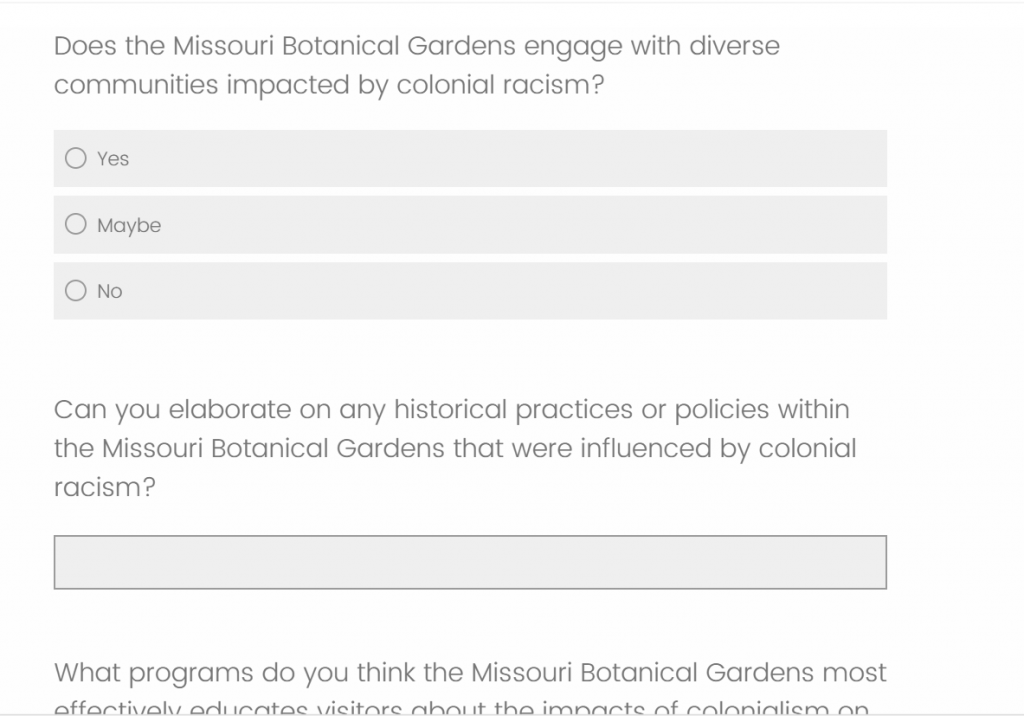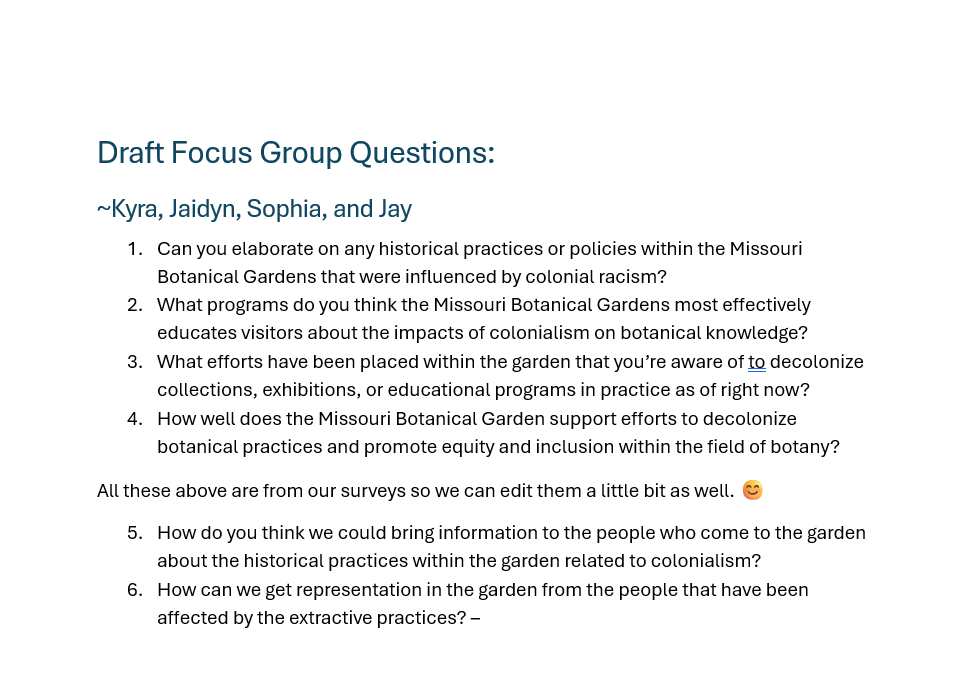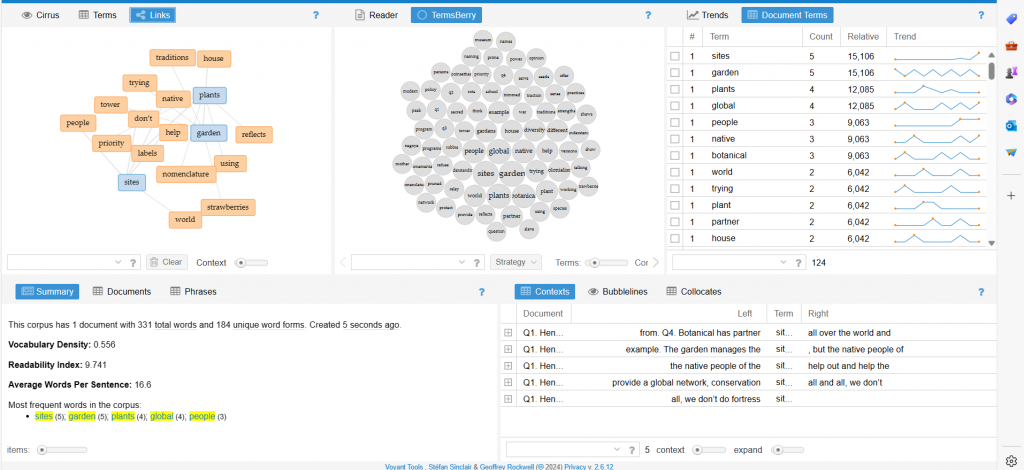Dr. Hildebrandt CODE122Kyra Williams- April 11th, 2024
The instructions for the final lab write up:
As with the survey analysis, discuss what you observed, why it’s significant, how it relates to the Garden’s current initiatives, and what next steps it might indicate. Include the following:
- Contextualize and interpret themes and patterns. Why are they surprising or significant? How do they support or challenge your prior knowledge?
- Mixed methods research allows us to approach a question from multiple angles to gain breadth and depth of understanding. How do your results relate to your survey? Did the qualitative study fill in the gaps you hoped it would? Did the results support your initial conclusions? Did they reveal complexity or tensions? Did they challenge them entirely?
- In addition to exploring the data, also reflect on your research design. Did you learn everything you need to know? How might you design the study differently next time to encourage more detailed or accurate information?
- While mixed methods research gives us a more holistic perspective on our topic than a single method, this doesn’t mean there’s nothing left to learn or that you’ve answered every question completely! Research is iterative – that means that we keep coming back to our topic in different ways to build up layers of knowledge and understanding. So, reflecting on what you’ve done so far, what else do you want to know?
–Surveys-
Phase one
My group includes Jay, Jaidyn, and Sophia. We are focusing on “how does colonialism affects the garden and the herbarium”. This lab has two parts, the first part was our surveys, and the second part of the lab was the focus groups we conducted. Our surveys kind of fell off and didn’t get the attention of the garden partners like we were hoping to get. At the end of that phase of our lab, we ended up only getting one response all together. Which was kind of disappointing for me and my team because we worked really hard on the survey, formulating specific questions and strategizing for weeks. So, we had to ask ourselves "what exactly did go wrong", with our surveys. The topic of our research question has an "uncomfortable " aura around it already because it is a heavy topic, but it is still a very important topic to talk about and raise awareness about it. the best thing that we could think is that maybe our surveys were asking too "heavy" of questions for a survey. Here below is an example of some of our surveys.

–Focus Groups–
Phase two
With the results that we got out of our survey (the one singular response), we decided to keep and re word some of the survey questions for our focus group. We also formulated new questions and points to ask the garden workers about during the focus groups. For the focus groups we had different people from the garden that we specifically wanted to ask our questions to. Here are the questions we ended up formulating:

With these questions in a focus group setting, we were much more successful in getting answers than these questions on the survey. I think we got a better response because in the settings of focus groups and interviews it kind of forces them to answer us. Because it is kind of an uncomfortable subject it’s hard to try and get a true honest response from people, but we were very happy with the results that we got. The focus groups included me and my team members (Jaidyn, Jay, and Sophia) and two employees from the garden at a time. We did a total of three different focus groups. We recorded and transcribed each interview at a time and had specific people asking specific people different questions that we formulated. After talking with the garden partners, we moved on to our last phase of this lab.
–The actual data and analysis-
The final phase
The last thing we did was data analyzing and data cleaning. Sitting down and putting together the data from the surveys and the focus groups and also really analyzing and looking at all of the data we got and looking at what we can do for the next steps with the gardens. I put our data from each interview that we had and plugged the transcription into (idk what it’s called). This was to get a visual and see if there are in patterns in the words across the focus groups.
